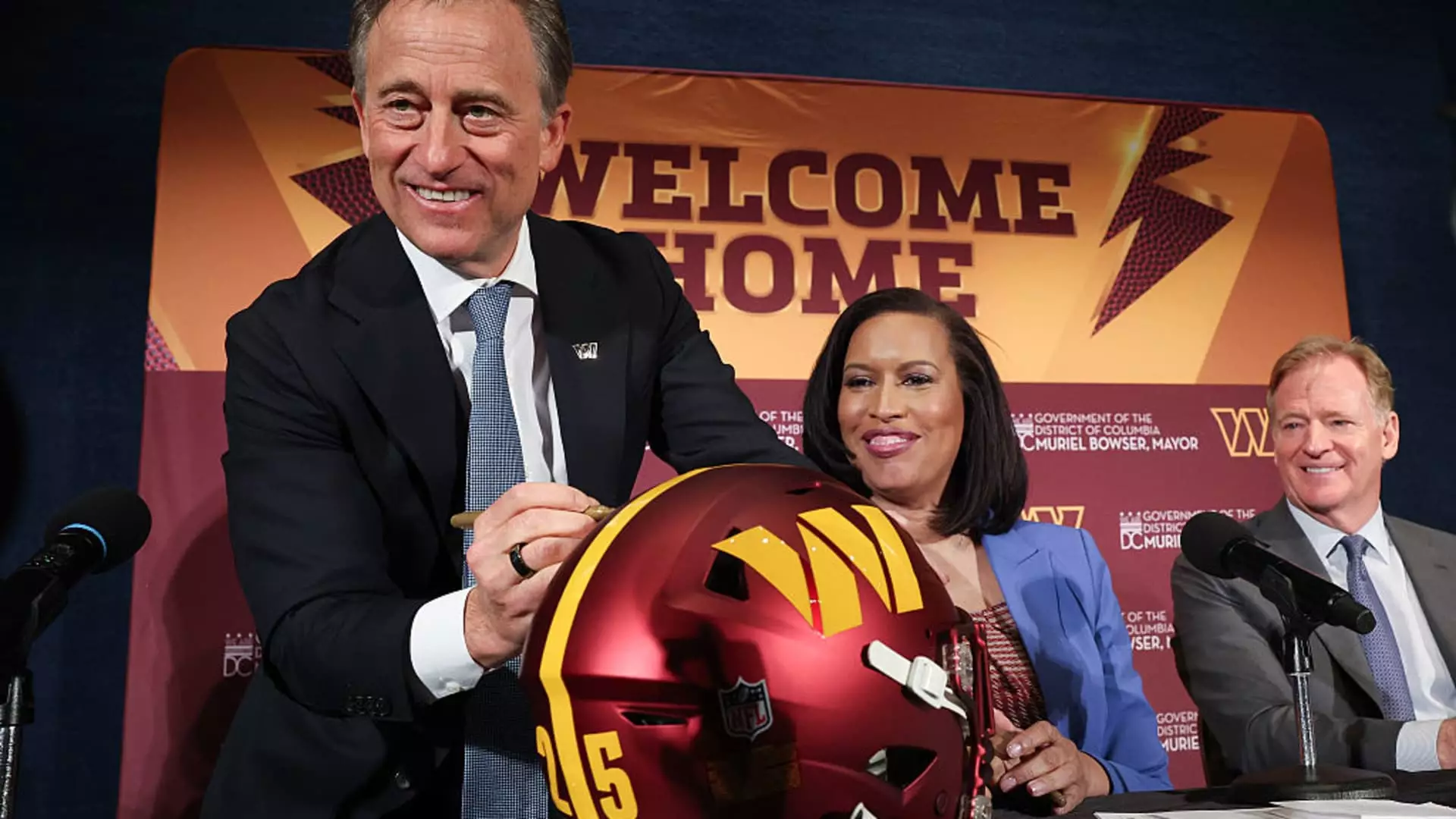The return of the Washington Commanders to D.C. from their Landover stadium is greeted with a blend of nostalgia and skepticism. This $3.7 billion project, centered around the historic Robert F. Kennedy Memorial Stadium, is touted as a monumental step for both the team and the city. Commanders’ managing partner Josh Harris emphasizes the team’s storied history, referring to the glory days that saw the team clinch three Super Bowl victories. Yet, lurking beneath the surface of such grand promises lies a more complex narrative about urban redevelopment, economic claims, and the ongoing discourse over public funding for sports facilities.
It’s hard to ignore the sheer audacity of the financial figures involved. With the city pitching in $500 million, one must question if this investment is genuinely in the best interest of Washington residents. While the projected $4 billion in tax revenue and over 15 billion in direct spending over 30 years sounds impressive, these calculations often assume ideal conditions. Will the economic windfall materialize, or will it be akin to the mirage of prosperity often promised by sports teams only to dissolve in the realities of urban poverty and displacement?
Community Impacts: An Uneasy Shift
The proposed stadium is not merely a sports venue; it is a central piece of a larger redevelopment plan that includes housing, parks, and retail spaces. However, the simultaneous development promises often lead to gentrification, pushing out longtime residents in pursuit of profit. Titles and amenities like “parkland” and “retail” evoke a blissful vision of community harmony, but the reality might starkly contrast, as local voices struggle to regain their footing amidst soaring rents and relocation.
Moreover, the Commanders’ return to their historic stomping grounds raises the question of who truly benefits from this multi-billion dollar affair. Local businesses and citizens on the fence often find themselves sidelined in a narrative dominated by sports marketing and capitalist exuberance. It is essential to recognize that while there may be temporary job creation, the influx of wealth is frequently uneven, creating a landscape where the rich get richer while disenfranchised communities remain at the margins.
Political Football: Health and Growth Need Balance
Washington Mayor Muriel Bowser’s upbeat reception of the Commanders’ move aligns with a broader political agenda that seeks to revitalize the District economically. Still, the fervent optimism expressed by city officials fails to adequately address the pressing issues faced by residents who may not see the promised jobs and economic growth.
Harsh realities collide with romantic visions of big football. Maintenance costs, urban infrastructure needs, and displacement fears cast shadows over this ambitious venture. Solutions must cater not only to the affluent sports fans who will flock to the stadium but also to everyday citizens who deserve equitable benefits from such massive investments.
In the end, as we look forward to the unveiling of a new era for the Commanders, it is imperative to remind ourselves: a stadium alone doesn’t transform a city. True success lies in the creation of genuine, holistic advantages for all residents, requiring transparency and a balanced approach to growth that weighs public interest against profit motives. The excitement around the return of the Commanders is palpable, but all stakeholders must remain vigilant to ensure that the potential benefits extend beyond the confines of the field.

